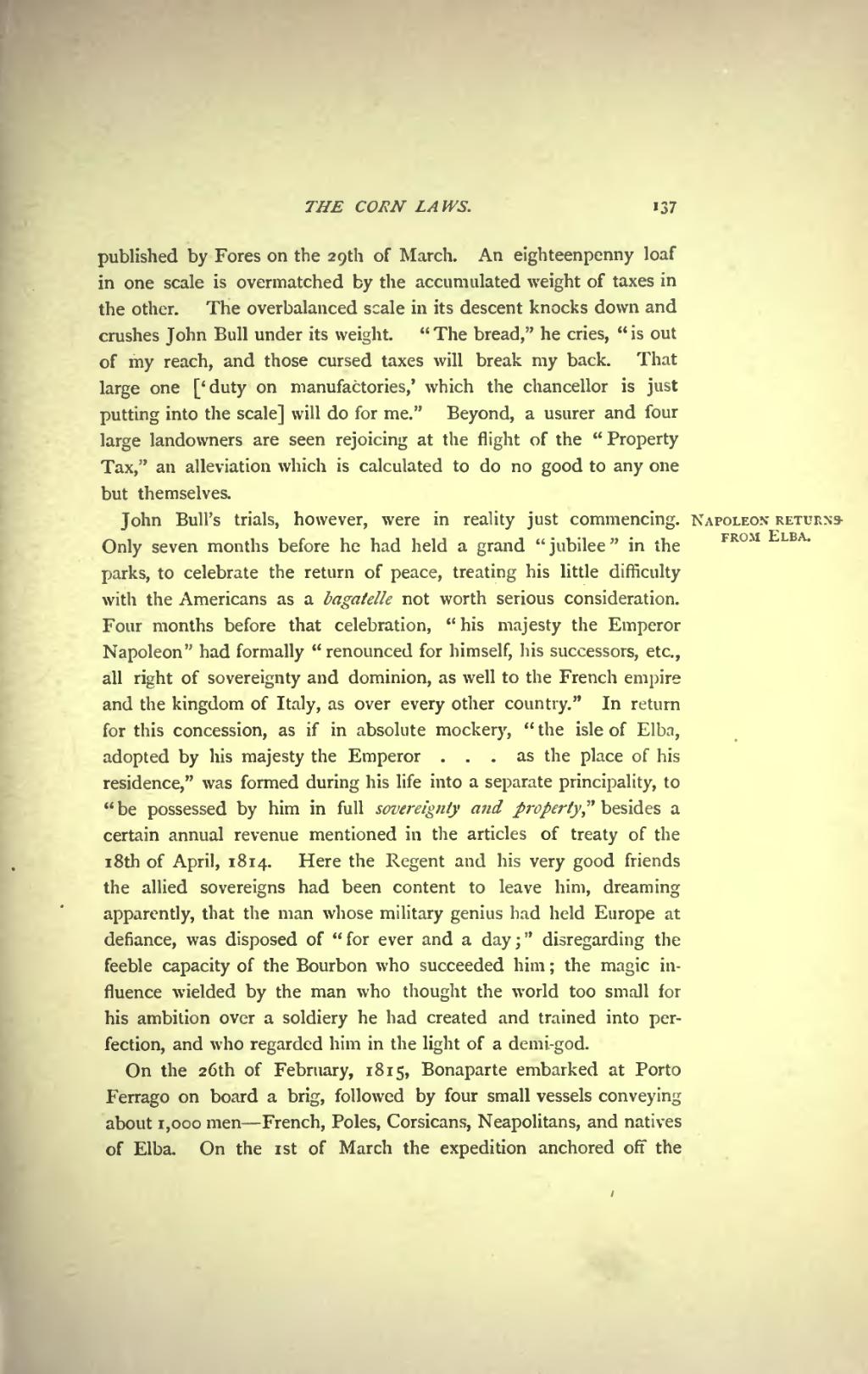published by Fores on the 29th of March. An eighteenpenny loaf in one scale is overmatched by the accumulated weight of taxes in the other. The overbalanced scale in its descent knocks down and crushes John Bull under its weight. "The bread," he cries, "is out of my reach, and those cursed taxes will break my back. That large one ['duty on manufactories,' which the chancellor is just putting into the scale] will do for me." Beyond, a usurer and four large landowners are seen rejoicing at the flight of the "Property Tax," an alleviation which is calculated to do no good to any one but themselves.
Napoleon returns from Elba.John Bull's trials, however, were in reality just commencing. Only seven months before he had held a grand "jubilee" in the parks, to celebrate the return of peace, treating his little difficulty with the Americans as a bagatelle not worth serious consideration. Four months before that celebration, "his majesty the Emperor Napoleon" had formally "renounced for himself, his successors, etc., all right of sovereignty and dominion, as well to the French empire and the kingdom of Italy, as over every other country." In return for this concession, as if in absolute mockery, "the isle of Elba, adopted by his majesty the Emperor … as the place of his residence," was formed during his life into a separate principality, to "be possessed by him in full sovereignty and property," besides a certain annual revenue mentioned in the articles of treaty of the 18th of April, 1814. Here the Regent and his very good friends the allied sovereigns had been content to leave him, dreaming apparently, that the man whose military genius had held Europe at defiance, was disposed of "for ever and a day;" disregarding the feeble capacity of the Bourbon who succeeded him; the magic influence wielded by the man who thought the world too small for his ambition over a soldiery he had created and trained into perfection, and who regarded him in the light of a demi-god.
On the 26th of February, 1815, Bonaparte embarked at Porto Ferrago on board a brig, followed by four small vessels conveying about 1,000 men—French, Poles, Corsicans, Neapolitans, and natives of Elba. On the 1st of March the expedition anchored off the
